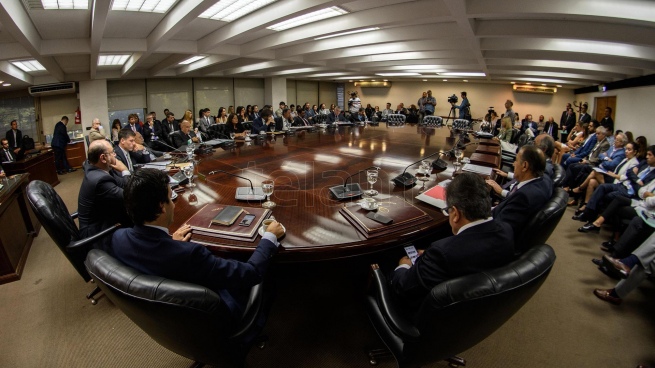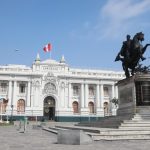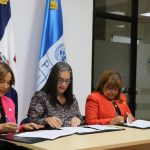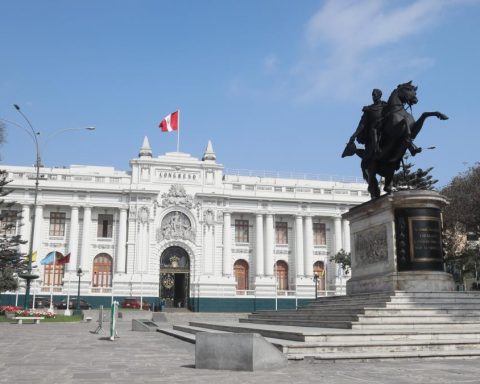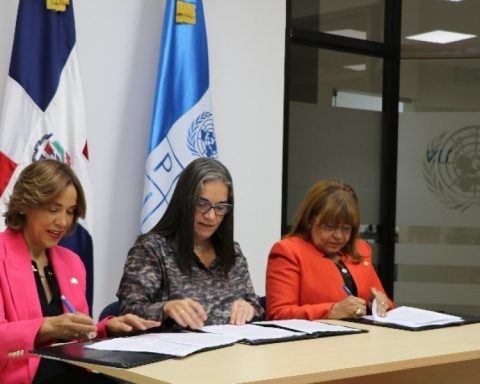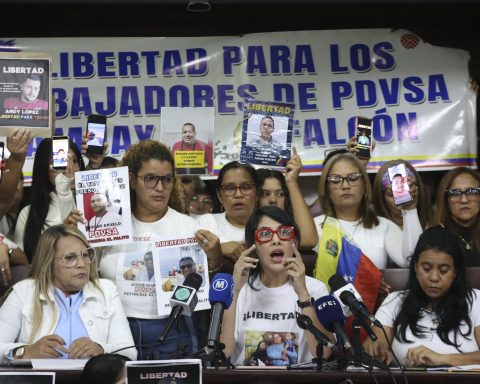A plenary session of committees of the Chamber of Deputies continued with the presence of specialists the debate on the project to reform the Council of the Magistracy promoted by the ruling party, which It proposes raising the number of members from 13 to 17 and creating four federal regions for its operation.
The lower house resumed the treatment of the issue with a round of consultations with experts, invited at the proposal of all the parliamentary blocs, in the plenary session of the commissions on Constitutional Affairs, chaired by Hernán Pérez Araujo (FdT), and on Justice, in charge by Rodolfo Tailhade (FdT).
The debate started on Tuesday. past with presentations by four guests from the academic and judicial spheres.
When opening the list of exhibitors, Pablo Hunger, consultant in Judicial Administration, he said that “if there is hegemonic power, one cannot speak of balance” and affirmed that “the Council of the Judiciary must have a non-binding opinion on justice reform projects.”
For its part, the former national deputy for socialism, María Elena Barbagelataremarked: “The project, which comes with a half sanction, deals with the issue of parity” and pointed out that “it is a positive integration proposal that represents a floor and not a ceiling.”
Francisco Marull, dean of the Faculty of Legal Sciences of La Pampa, opined that “the selection, training, eventual dismissal and administration of the Nation’s judges must be done from a federal perspective, otherwise that representation will not be real, but symbolic” and said that “from what I understand that the half sanction of the Senate satisfies that issue.”
To its turn, Joaquín Da Rocha, former advisor to the Judiciary for the Executive Powersaid that the project sent by the Senate “satisfies the minimum requirements that a reform must have in order to be adequate and, above all, to be useful.”
“I think that the numbers are good in terms of integration and I am going to say ahead of time, because I lived for four years where the President of the Council was the President of the Court, which was not a good experience, since although it facilitated contact, a presence was felt too strong of who presided over both organizations”, he added.
María Losada Figueroa, judge of first instance in Catamarca, he stressed “the importance that the formation of this constitutional body be analyzed in Congress”, and added that “the Council must have three fundamental axes, such as efficiency, transparency and contact with the community, since it must listen to the need of the judges and judges, but also of the citizens of each place”.
For its part, César Grau, titular member of the Prosecution Court of the Public Prosecutor’s Office of the Nation, pointed out that “what the Constitution wanted in 1994 was to guarantee the independence of judges” and affirmed that “this has a horizontal character because the possibility of discretion in the appointment of magistrates is removed from the Executive Power; and also independence by The Court no longer has disciplinary power over judges”.
Academician Daniel Vitolo, considered that the modification of the Council of the Judiciary carried out in 2006, and recently annulled by the Court, “in addition to having been declared unconstitutional, it was a weak law because it had been approved by Congress with strict parliamentary majorities.”
“The 1994 Constitution was based on lowering the influence of party politics on judges; and the Council was not created to remove the judicial corporation, a Justice that was disbelieving because it was considered co-opted by party politics,” he explained. .
What does the project propose?
The initiative of the Executive Power, which in the Senate had the support of the ruling party and provincial blocs, seeks to provide greater federalism to the body in charge of selecting judges.
The project raises the number of members from 13 to 17 and creates four federal regions within the body, which will meet periodically in the interior of the country, with the goal of providing it with greater federalism.
In this way, if the project of the Executive Power advances, the Council would be expanded again, after in December of last year the Supreme Court declared the unconstitutionality of the conformation of 13 members that was ordered in 2006.
In that resolution, the highest court granted Congress a period of 120 days to pass a law that established a new structure for the body in charge of proposing magistrates to be appointed by the President of the Nation, administering the Judiciary, controlling the activity of judges and eventually sanction them and send them to impeachment.
The term expired on April 15 without the ruling party being able to put the issue up for debate, among other issues, due to the lack of formation of the aforementioned commissions.
For this reason, the Judicial Council began to be structured last month with the composition of 20 members, some of whom have already joined the body, including the president of the Supreme Court, Horacio Rosatti.
